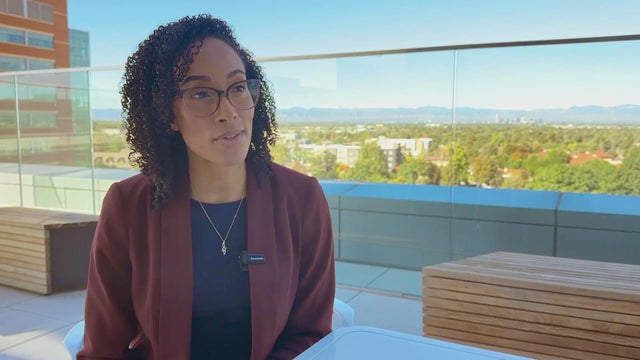Colorado doctor talks common women's health issue lacking answers, "What kind of life is that?"
Imagine walking around with debilitating pain, fatigue, abdominal pressure, extreme cycles, and there seems to be no solution.
"You're struggling to breathe, shortness of breath. You can't work. You can't interact with your family. What kind of life is that?" said Dr. Gabrielle Whitmore, a minimally invasive gynecologic surgeon and assistant professor at CU Anschutz in Aurora.
That's what it can feel like to have uterine fibroids.
"Every single day, you're just being drained and consumed by this fibroid," Whitmore explained.
Fibroids are tumors that grow in the uterus. Although they're typically non-cancerous, they can cause serious issues. The startling truth is doctors have no idea what causes them.
"We don't know why they grow," Whitmore said. "We don't know how fast they grow. There's so much unknown, which is so frustrating to me and my patients. If you think about the medical visits, the emergency room visits, blood work, medical treatment, surgical treatments, it's estimated to be about ($4) to ($9) billion a year that we're spending in the United States."
And the reality is most women in the country will experience them in their lifetime.
"It affects about 70 to 80%," Whitmore said.
According to the National Institutes of Health, the total economic burden, which commonly includes subsequent infertility treatments and C-sections as a result of surgery to remove them, adds up to over $40 billion every year.
"The crux of the issue is how can we prevent them? Why are they happening?" Whitmore said.
Whitmore is also an advocate for greater awareness and funding for research to solve this medical mystery. When asked if she thinks there will be answers in this lifetime, she said, "I am hopeful."
"I think, through social media and the news, we are talking about it more," Whitmore said. "You can't ignore it if everybody's talking about it. I think people like you and I are advocating for these certain types of projects, and research and advocacy does take time, but I do think it will pay off in the end."
The National Institute of Child Health and Human Development awarded $15 million to research uterine fibroids in 2024. Although it will likely take several years to collect the data, it's a step in the right direction.
In the meantime, awareness is key, as well as addressing symptoms with a doctor.
"We have normalized symptoms that are not normal," Whitmore said. "That is something that we need to rewrite."

